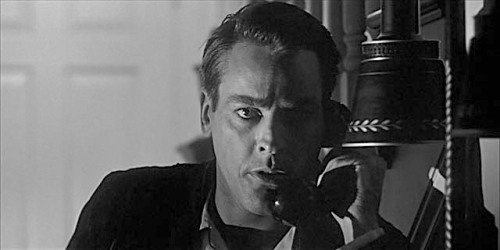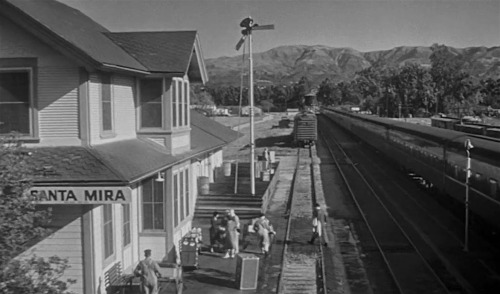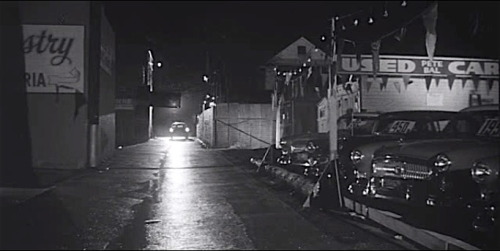Invasion of the Body Snatchers (1956, directed by Don Siegel)There are no saucers, no death rays, no
Invasion of the Body Snatchers (1956, directed by Don Siegel)There are no saucers, no death rays, no monsters: just the steadfast and magnificently creepy invasion of our very souls. Actually, the “visitors” are removing souls and taking over the bodies of everyone in a quiet California town. This brilliant bit of manipulation blends authentic horror with pure Cold War paranoia, and first-time viewers of this film invariably are surprised that a sci-fi thriller of the 1950s still packs such an emotional wallop. It’s ideally structured as well, through the use of flashback narrative and the second act’s stunning moment of realization that takes place during a steaks-and-martinis evening on the patio. Talk about subversive.The title is so entrenched in the lexicon that people who have never seen the picture feel they at least understand its basic theme. Take the time to see it and you will be astonished by its effectiveness. Daniel Mainwaring, who penned some of the better noir thrillers of the ‘40s, including Out of the Past, crafted a script that seamlessly weaves science fiction elements into the mystery/suspense genre. Few modern thrillers are more compelling in pace or construction.Debate over the proper allegorical reading of the plot justifies this film’s status as the quintessential essay on Cold War paranoia. Do the invaders represent emotionless, Godless communist infiltrators, or are they the ultimate conformists in lock step with Joe McCarthy? You can argue either side, but the threat remains that of forced, irreversible orthodoxy at the genetic level. When the invaders take over your body, not only will you be different, you won’t even care. As one of the aliens calmly puts it, “Tomorrow you’ll be one of us.”While there is delightful poetry in the fact that the lead actor’s name is Kevin McCarthy, the popular myth that the studio made an anti-communist story while director Don Siegel pushed for an anti-McCarthy theme has been debunked by the director himself. Siegel believed the story’s impact was in the horror of losing emotions or individuality, apart from whatever politics may be applied. He often referred to less creative Hollywood staffs and studio executives as “pod people.” His actual conflict with producers concerned only the opening and concluding hospital scenes, which were tacked on by the studio. The original story ended with Kevin McCarthy shouting “You’re next!” at oncoming vehicles (and, consequently, the viewing audience), but the studio insisted on the “upbeat“ending.In retrospect, one might question whether that ending is any less disturbing. Watch very carefully what transpires in that hospital scene, and then consider what has thus far occurred to anyone discovering the alien plot. There is a logical flaw in the assumption that the final scene is any kind of resolution at all–but let’s not give anything away.One may also find a perverse satisfaction in the fact that the alien takeover constitutes a wide-scale role reversal for conformist, middle-class America. The calm, well-behaved small-town citizen—the fellow in line behind us at the supermarket—is an alien who just happens to be devoid of emotion. That disheveled maniac running headlong into traffic? He’s the family physician, and he happens to be the only human in town. -- source link
Tumblr Blog : 5starcinema.tumblr.com
#the fifties



